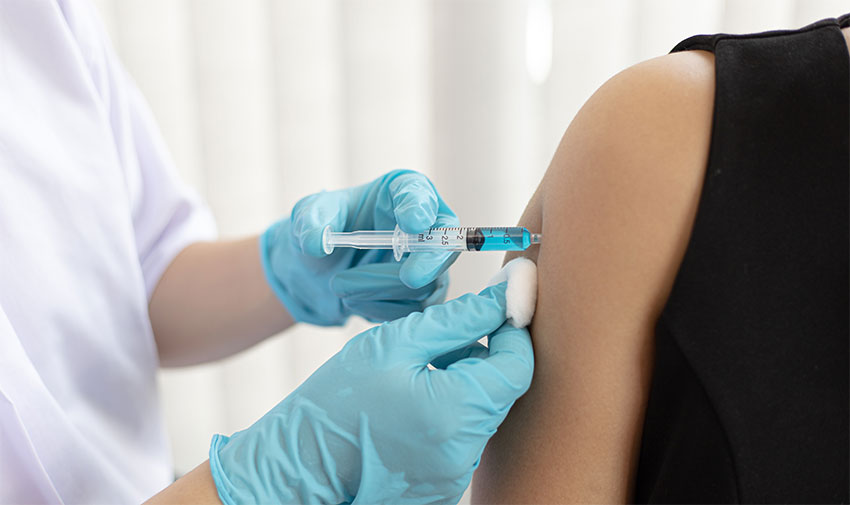In the same section
-
Share this page
New group A Streptococcus vaccine antigen [Technology Offer]
The technology in a nutshell
This invention provides new protein-based ingredients that can be used to make a vaccine to protect against Group A Streptococcus (GAS) infections.
The invention
This invention centers on peptides from the Group A Streptococcus (GAS) Enn protein that can trigger a protective immune response against GAS infections. It includes:
- Immunogenic Peptides: These peptides or polypeptides derived from the GAS Enn protein are used for preventing GAS infections and treating affected individuals.
- Classification Methods: New techniques for classifying GAS based on their Enn protein sequence, aiding in vaccine development.
- Hybrid Peptides: Combinations of immunogenic peptides from GAS Enn protein and related sequences to enhance immune response.
- Nucleic Acids and Vaccines: Nucleic acids encoding these peptides and vaccine compositions, including adjuvants, designed to prevent GAS infections.

Potential applications
The invention has several potential applications:
- Vaccine Development: Creating vaccines based on the immunogenic peptides from the GAS Enn protein to protect against Group A Streptococcus infections.
- Infection Prevention: Developing preventive treatments or vaccines to reduce the incidence of GAS infections in populations at risk.
- Thérapeutique Use: Designing therapeutic interventions for individuals currently infected with GAS, utilizing the peptides to boost their immune response.
- Diagnostic Tools: Developing diagnostic assays or tests to identify and classify GAS strains based on their Enn protein sequences.
- Hybrid Peptide Therapies: Creating hybrid peptides or immunogenic compositions that combine multiple GAS antigens for broader protection or enhanced efficacy.
Technology Readiness Level

TRL-3 Proof of concept of the technology on a preclinical model.
The team
Pierre Smeesters is a paediatrician and microbiology researcher with a strong clinical background in paediatric infectious diseases. As demonstrated by his multidisciplinary publication record, his expertise ranges from basic science to clinical infectious disease. Based on this work, Dr Smeesters was awarded the triennial GlaxoSmithKline Biologicals Award from the Belgian Royal Academy of Medicine in June 2013. Dr Smeester’s international profile is also demonstrated by his position as the Chair of the European Society of Paediatric Infectious Disease Master Class, by his appointments in international initiatives and by his recent International Influence Award from ULB.
The lab
The Bacterial Genetics and Physiology Laboratory is part of the "Institut de Biologie et de Médecine Moléculaires" of the Université libre de Bruxelles. This institute is composed of 14 laboratories working in various fields such as microbiology, immunology, parasitology and development. Our lab has a long-standing know-how in bacterial genetics and mobile genetic elements. We have developed a translational research line in the field of bacterial infections that aims to provide clinically relevant outcomes based on our basic science expertise.
Relevant publication
A Controlled Human Infection Model of Streptococcus pyogenes Pharyngitis. Lancet Microbe. (2021) Jul;2(7):e291-e299
Limitations of the Rheumatogenic Concept for Group A Streptococcus: systematic review and genetic analysis. Clin Infect Dis. (2020) Mar 17;70(7):1453-1460
Atlas of group A streptococcal vaccine candidates compiled using large scale comparative genomics. Nature Genetics (2019) Jun;51(6):1035-1043
Group A streptococcal M-like proteins: from pathogenesis to vaccine potential. FEMS Microbiology Reviews (2018) Mar 1;42(2):193-204
Download the offer in PDF
Keywords
- A Streptococcus
- Vaccine
- Antigen
- Biotechnology
- Healthcare
Collaboration type
- Licence agreement
- R&D&I collaboration
IP status
-
EP 22206633.4
Priority Date: 10/11/2022
Main inventor
Pierre SMEESTERS
Anne BOTTEAUX
Contact
ULB Research Department
Joachim Ruol
Business developer
+32 (0) 475 64 18 91
joachim.ruol@ulb.be
